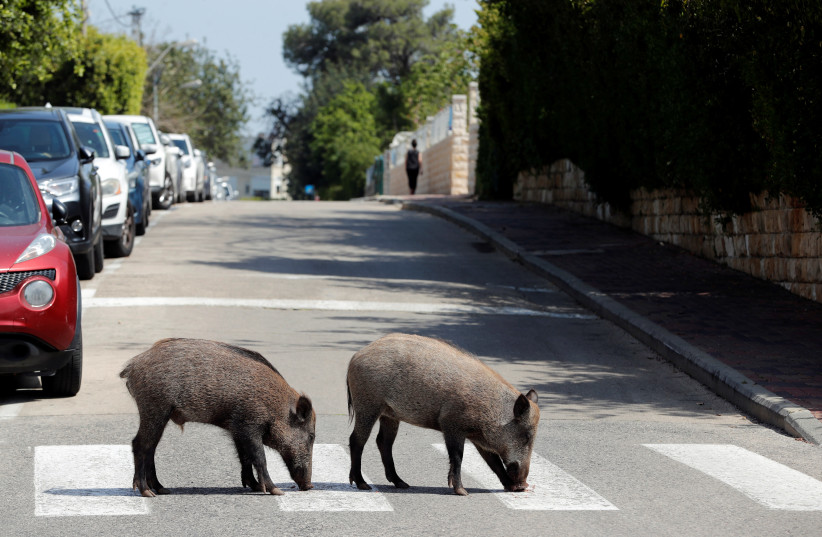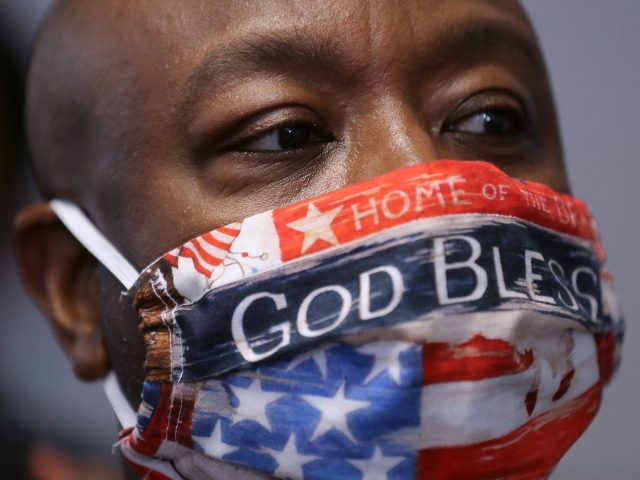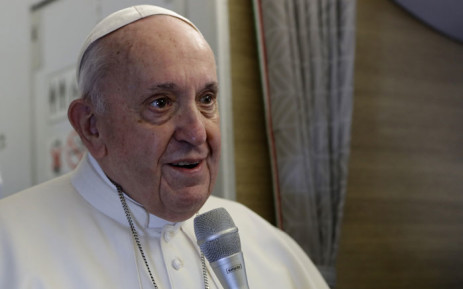This week marks the 27th anniversary of 27th April 1994. This date commemorates the first all-race election that brought the African National Congress (ANC) to power with a decisive 63% majority and – according to the organisation – a ringing confirmation of its enormous popular support.
The real story about the election is different and worth recalling: if only because ANC propaganda has been so effective in suppressing it, especially among the born-free generation with no independent memory of what occurred.
From less than 50% to close on a two-thirds majority
In October 1992, an internal ANC assessment concluded that the organisation, even on a 100% turnout, would at most obtain 50% of the overall vote in the first general election. The document noted that ‘while it might be “objectively correct” for black South Africans to vote for the ANC, their “subjective inclinations” might be otherwise’.
Why then was the final election result so different? Support for the ANC might have increased in the interim, as various opinion polls in late 1993 and early 1994 in fact indicated (though these results were tempered by large ‘won’t say/won’t vote’ responses). However, there were other assessments from that period that put ANC voter support at still below 50% – and which suggested that the election outcome was influenced by factors other than a growing enthusiasm for the ANC.
A pervasive fear
A pervasive fear was the first key factor. Political killings had soared since February 1990, when President FW de Klerk had thrown open the door to democracy by unbanning the ANC – and authorising the return of some 13 000 trained Umkhonto we Sizwe insurgents whom the ANC then refused to disband or disarm.
Some 5 500 people had died in the first five years of the ANC’s people’s war from 1984 to 1989. But roughly 15 000, or three times as many, were killed between 1990 and 1994, as the ANC intensified its attacks on its main rivals in the lengthy run-up to the first all-race election.
Until the week before the poll, the Inkatha Freedom Party (IFP) remained under persistent attack, to which it often responded with violence. It nevertheless bore the main brunt of the people’s war, in which some 400 IFP office bearers and thousands of IFP supporters were shot, hacked, or burnt to death, sometimes by the necklace method. This generated an enormous fear among many township residents of being labelled Inkatha supporters and suffering the same fate.
In the months before the poll, the National Party (NP) listed more than 200 incidents in which ANC supporters had intimidated, assaulted, or murdered NP members in an ‘unabated campaign of intimidation’. This soon compelled the NP to stop all canvassing in townships on the Reef and in the Eastern Cape.
In many black areas, street committees and civic associations helped ensure conformity with ANC perspectives, while an omnibus opinion poll conducted by the Human Sciences Research Council found that 20% of respondents felt pressurised ‘to vote for a party they did not particularly support’ and 46% had little confidence their vote would remain secret.
International observers seemed little concerned about the intimidation, the 165 ‘no-go’ zones across the country that the Independent Electoral Commission (IEC) had identified, or the large number of political killings. Two major British newspapers thus stood virtually alone in warning that the pending April 1994 election was unlikely to be either free or fair.
The London Sunday Telegraph criticised the British media for ‘pushing the fairy tale that the peace-loving, democratic ANC…was about to come into its inheritance’. It went on: ‘South Africa is likely to become the first country outside the former USSR to elect a communist government by supposedly “democratic” means, even though this might involve tens of thousands of deaths… What is happening is the end-game of a sinister process that has been unfolding since 1984, when the ANC and its ally, the SACP, launched a deliberate campaign to eliminate by terrorism their black rivals, particularly Inkatha.’
The London Sunday Times commented in an editorial that ‘there is no way the elections are, by any standard, going to be free and fair… The ANC is determined to take power by riding roughshod over those who stand in its way…. While it preaches democracy, the ANC practises totalitarianism. It prefers to kill its opponents rather than use reason and argument. Its intolerance to criticism and its adherence to communist ideals means South Africa will be a virtual one-party state’.
Widespread electoral chaos
The election was originally supposed to take place over three days from 26th to 28th April. The first day, 26th April, was intended for the casting of special votes, so that the elderly and handicapped could avoid crowd pressures. Most voting was expected to take place on 27th April, which was declared a public holiday. A further day, 28th April, was set aside for those unable to vote on 27th April.
But millions of voters began flocking to the polls on 26th April, only to find that many voting stations failed to open at all. Chaos prevailed at others, marked by severe shortages of ballot papers, the special invisible ink with which voters’ hands were supposed to be marked to prevent them voting more than once, and the ultra-violet light boxes needed to detect the special ink. Often missing too were the stickers with the IFP name and logo that were supposed to be fixed to all the ballot papers. (The IFP agreed to participate in the election only a week beforehand – and by then the ballot papers had been printed without its details.)
The shortages and disruptions were excused on the basis that this preliminary day had been intended as a trial run – but in many areas the chaos on the 27th was just as bad. So great was the disorganisation that 28th April was declared a public holiday as well. But chaos still prevailed in many areas, with the result that voting was extended to the 29th in many areas, including KwaZulu. Though polling stations had still not opened at all in some places, a halt was then called.
Some of the turmoil could clearly be attributed to the inexperience of the IEC, which had never run an election before. However, it was also notable that the disruptions and the chaos were particularly acute in the two regions that held the key to the national result. These were the Reef, with an estimated 4.8 million voters, and KwaZulu-Natal, with 4.5 million. These were also the areas in which the IFP had long enjoyed considerable support – and in which the shortages of balloting material remained widespread and severe.
Electoral fraud
Soon the matter of electoral fraud began to loom large. At the ANC’s insistence, there was no voters’ roll and few effective safeguards against people voting more than once. All attempts to maintain proper control over the issuing and distribution of ballot papers were also soon abandoned.
Before the poll, the IEC had printed 80 million ballot papers for an estimated 21.7 million voters, of which half were to be used for the national election and half for the provincial one. But so great was the shortage of ballot papers at the end of 27th April that an additional 8.6 million papers had to be printed overnight and rushed to polling stations.
A total of some 87 million ballot forms was thus printed. This was double what should have been needed on a 100% voter turnout, and yet the shortages persisted. It was only after polling stations had closed that more than 16 million unused ballot papers were found on the Reef. Huge numbers were also discovered in other areas and especially in KwaZulu-Natal.
The disappearance of these ballot papers not only created shortages that prevented many people from voting but also ‘produced the possibility of the large-scale “manufacture” of votes’, as author RW Johnson pointed out in a book on Launching Democracy in South Africa.
When the counting of the votes began on 30th April, another vital safeguard against electoral fraud was jettisoned. At the end of that day, the IEC announced that it had scrapped the requirement that the number of ballot forms issued to a polling station should be reconciled with the number of votes cast there. This process was so longer possible because presiding officers – many of whom were known ANC supporters – had failed to keep adequate records of ballots cast.
In addition, close on 9 million additional ballot papers had been printed and issued in great haste and none of these had serial numbers. Besides, said IEC chairman Judge Johann Kriegler, ‘the election is about national reconciliation, not ballot reconciliation’.
But dispensing with this requirement made it impossible to check whether ballot boxes had been stuffed with manufactured votes. It also made it impossible to tell whether all the ballots legitimately cast had found their way back to counting stations.
Complaints by all the parties
Soon all the major political parties began to question whether the election could be accepted as free and fair. The NP lodged a long list of complaints and demanded that close on 1.7 million votes be set aside. The Democratic Party (DP) said it wanted 1.5 million votes declared invalid, along with the decision to dispense with ballot reconciliation.
The IFP described the IEC as ‘a surrogate’ of the ANC and said the commission had ‘employed card-carrying ANC members to put the ANC into power’. The Pan-Africanist Congress (PAC) said it was receiving reports from many areas of ‘irregularities and downright fraud’. Nor could these be blamed on administrative bungling, as ‘IEC apologists’ made out. Rather, they smacked of deliberate and pre-planned manipulation of the poll results, for ‘up to 90% of IEC monitors were ANC sympathisers or members who were bent on sabotaging the PAC’s electoral chances’.
A negotiated outcome?
As the complaints intensified and the count dragged on, so rumours began to circulate that the IEC had abandoned all attempts at computing an accurate result – and that the outcome would effectively depend on bargaining between the parties.
An editorial in the Weekly Mail & Guardian was scathing. The IEC, it said, had ‘bungled the election wholly and completely’. As a result, Judge Kriegler had been compelled to admit that ‘counting, accuracy and care had given way to horse-trading among the parties’. Instead of adjudicating on the accuracy of the outcome, he had become ‘a mediator, desperately negotiating a result that all parties would accept’.
Judge Kriegler repeatedly denied this. ‘The parties had entered into discussions on irregularities’ and on whether to ‘withdraw objections’ to disputed votes, and there was nothing wrong with that. In addition, the final results were ‘totally and wholly based on our count’, he said.
The ‘prime prize’ of state power
In the end, the IEC accorded the ANC 62.6% of the vote in the national contest, giving it 252 of the 400 seats in the National Assembly. The NP was accorded 20.3%, the IFP 10.5%, the Freedom Front 2.2%, the DP 1.7%, and the PAC 1.2%. The percentage poll across the country was a surprisingly high 90%, while the proportion of spoilt ballots was an astonishingly low 0.75%.
As the ANC was later to put it, the 1994 election brought it ‘a critical new instrument of struggle, ie state power’ – the ‘prime prize’ it had been intent on securing through the decade of the people’s war. This in turn provided it with ‘immense possibilities to use the new situation as a beachhead to fundamentally transform society’.
In pursuit of this ‘transformation’, the ANC and its ally, the South African Communist Party, have for 27 years been implementing a national democratic revolution (NDR), aimed at taking the country by incremental interventions from a predominantly capitalist economy to a socialist and then communist one.
The NDR is the key reason for the ANC’s determined erosion of non-racialism, property rights, and other constitutional checks and balances. This in turn has fuelled cadre deployment, wastefulness, corruption, and an upsurge in public debt over the past decade. It has also brought about a steady implosion in investment, growth, employment, skills, and public sector efficiency.
The NDR is the predominant factor in the ANC’s reversal of the Midas touch, in which everything it handles turns to dross instead of gold. However, like the truth about the people’s war and the April 1994 election, the NDR is a reality the media chooses largely to ignore.
https://dailyfriend.co.za/2021/04/29/the-truth-about-the-april-1994-election/











